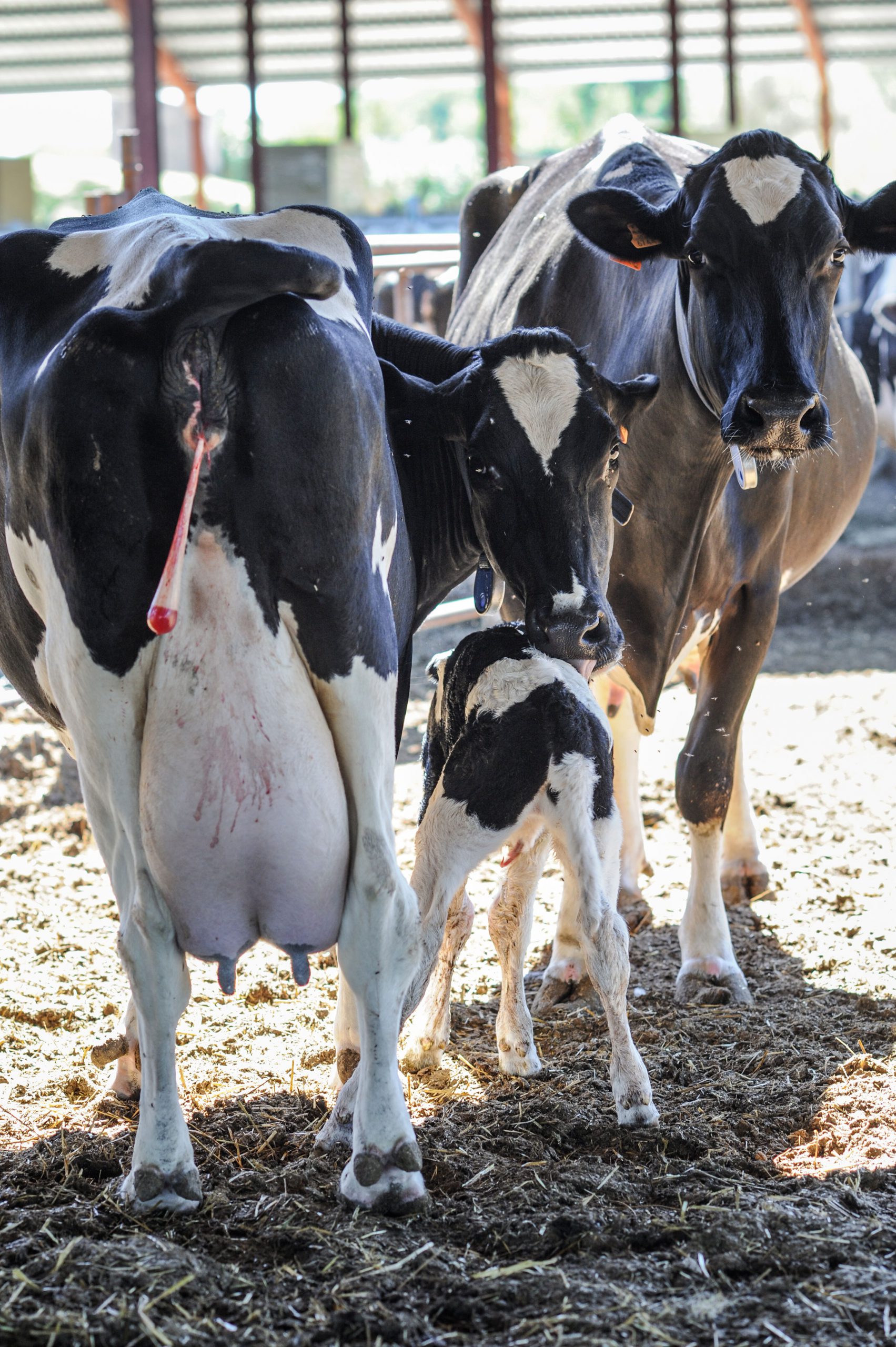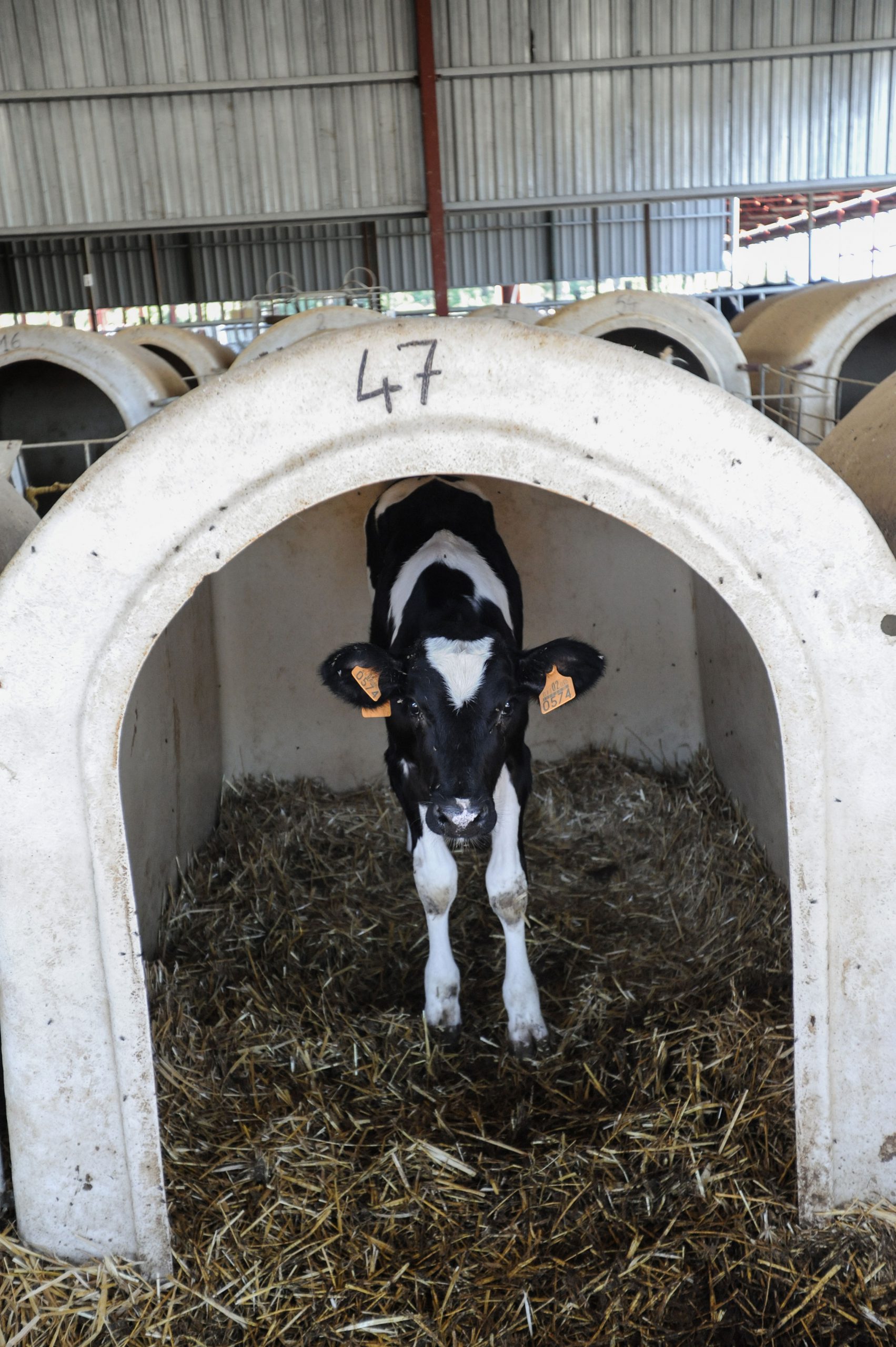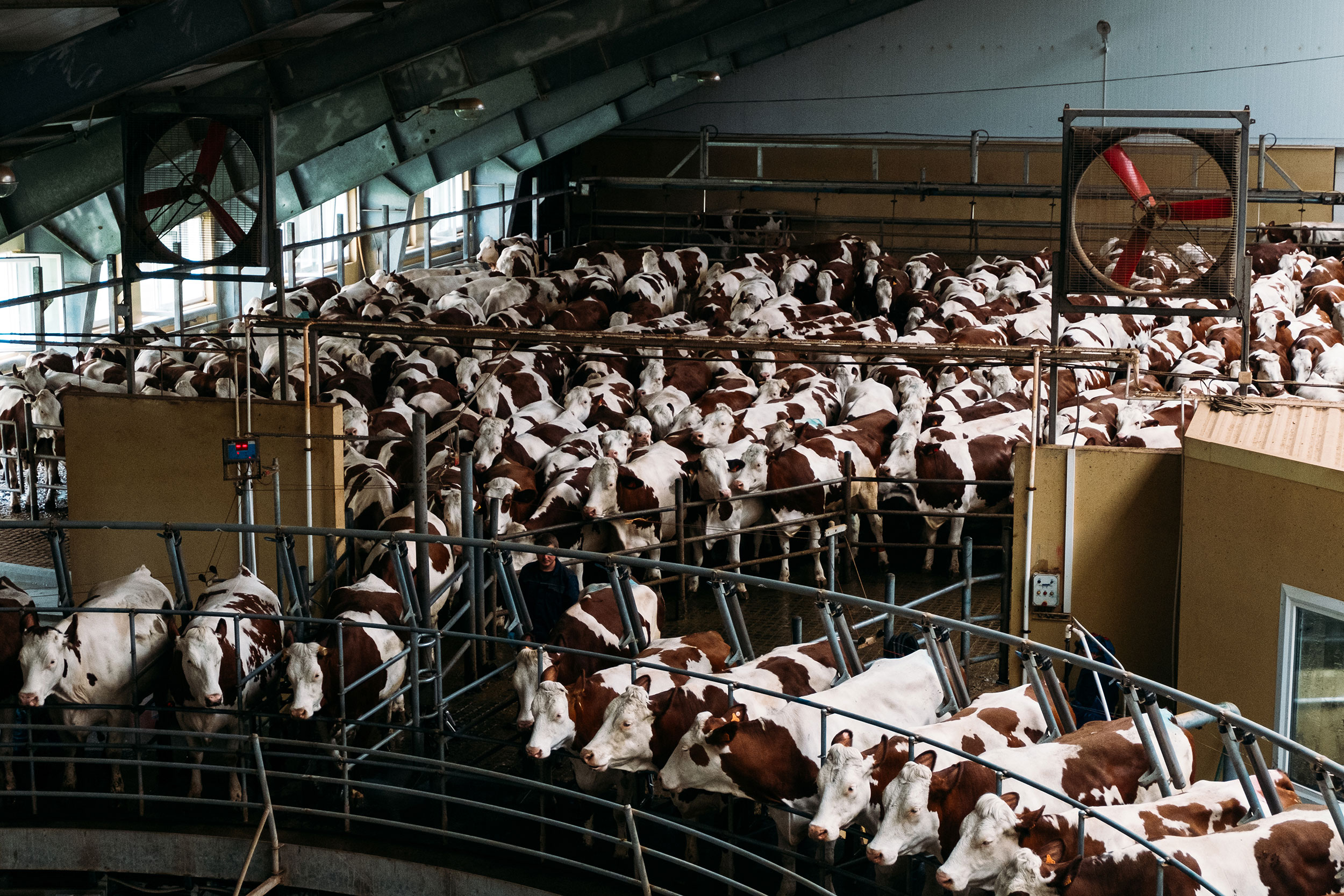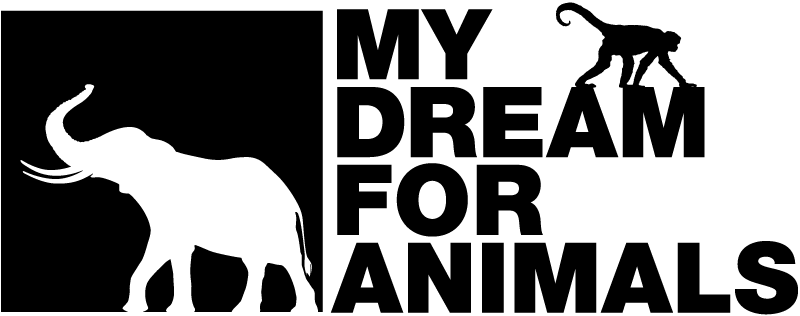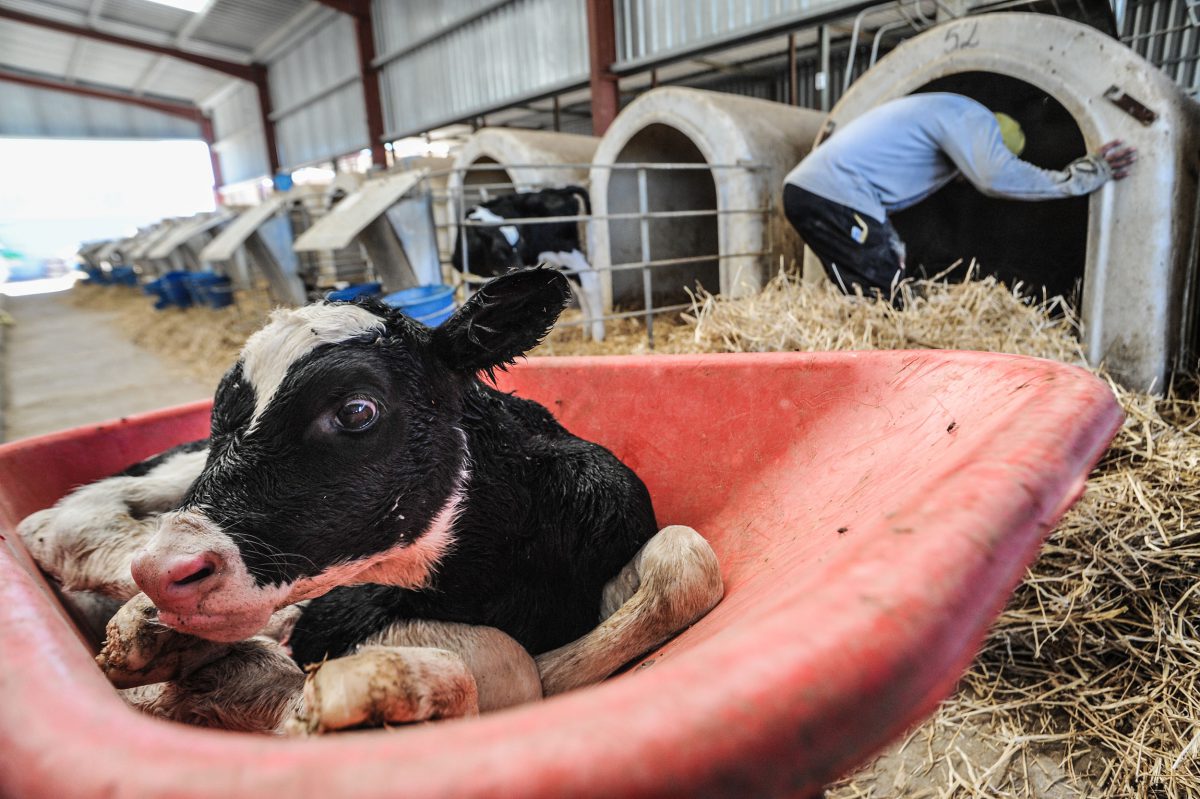
Dairy is the Veal Industry
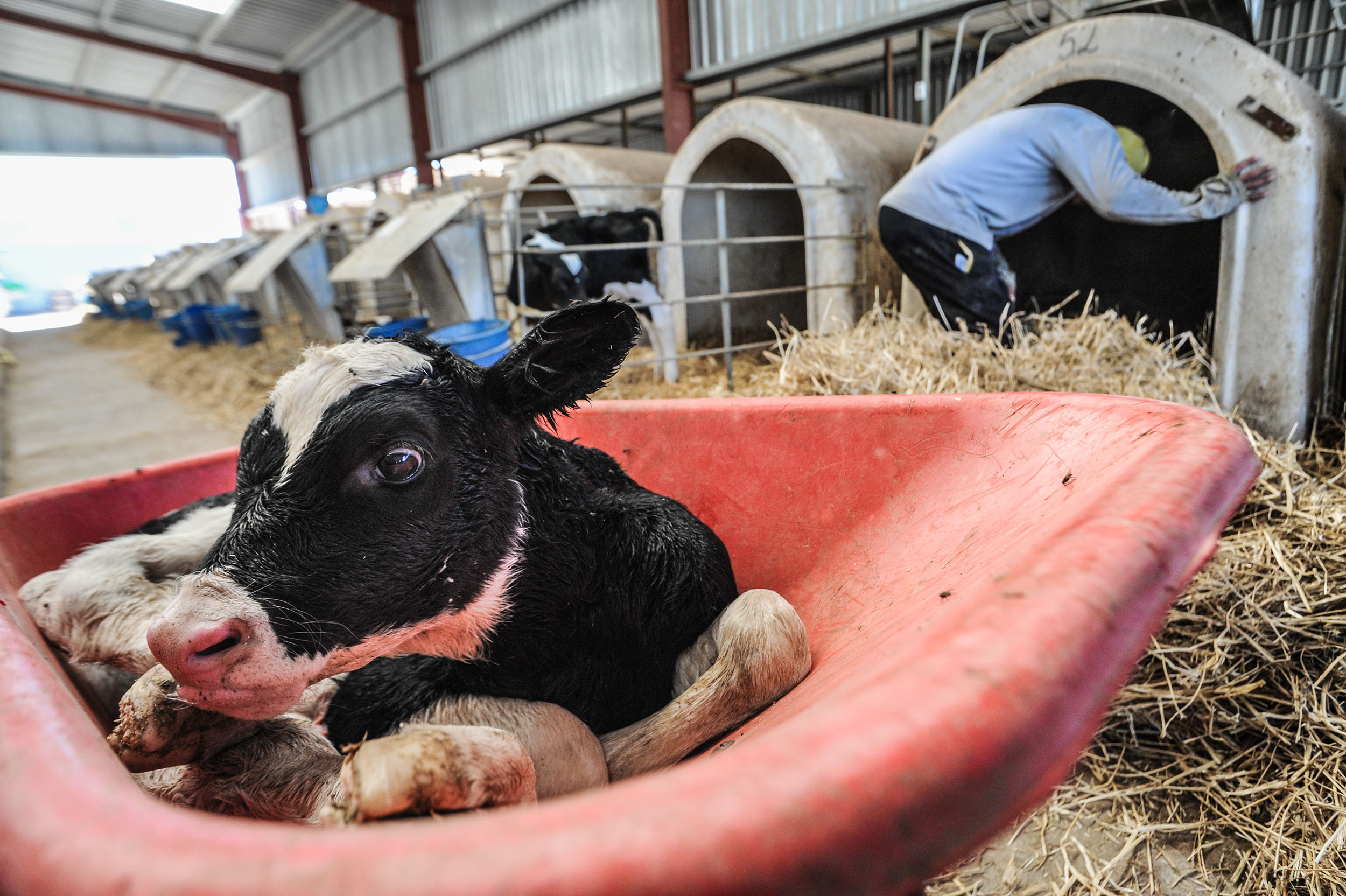
Why is milk and cheese bad for animals? For years I didn’t understand the connection, and ate dairy products and cheese not realizing how it impacted the lives of animals. For starters the dairy industry is the veal industry. For a cow to produce milk she needs to constantly be pregnant and giving birth. Typically male calves are taken days after they are born, and sold to the veal industry which is one of the most horrifically cruel industries imaginable. The babies are kept isolated in crates or small hutches where they can barely move, so the meat does not become tough. Because they cannot exercise their muscles are weak and often atrophy, which means they are often dragged to slaughter. If the calf is a female she is cycled right back into the dairy industry where she is forcibly impregnated by bulls or artificially inseminated, and kept pregnant for approximately five to six years. At this point she has passed her peak for milk production, and is sold to slaughter. A cow in a natural environment typically will live 20 plus years.
It is also extremely traumatic for cows to have their babies taken from them right after birth. It is common for cows on dairy farms to moan and cry incessantly for weeks after their calf has been taken away. To deny this bond is to deny one of the strongest bonds in all of nature. Occasionally the babies are left with their mothers, and fitted with spiked muzzles so they cannot nurse, which is unimaginably cruel. Every time you eat a piece of cheese, or eat ice cream you are supporting this cycle of cruelty.
It is common for cows on dairy farms to moan and cry incessantly for weeks after their calf has been taken away
Furthermore cow’s milk is meant for cow babies, as human milk is meant for human babies. It has been so ingrained in our collective psyche that we need cow’s milk for “healthy bones” or “to grow big and strong” that we forget that cow’s milk is not meant for our bodies. Humans would typically find it gross to drink dog or cat milk. Why? There is no difference. Our bodies are not designed to digest cow’s milk, or the milk of anything other than that of our mothers.
